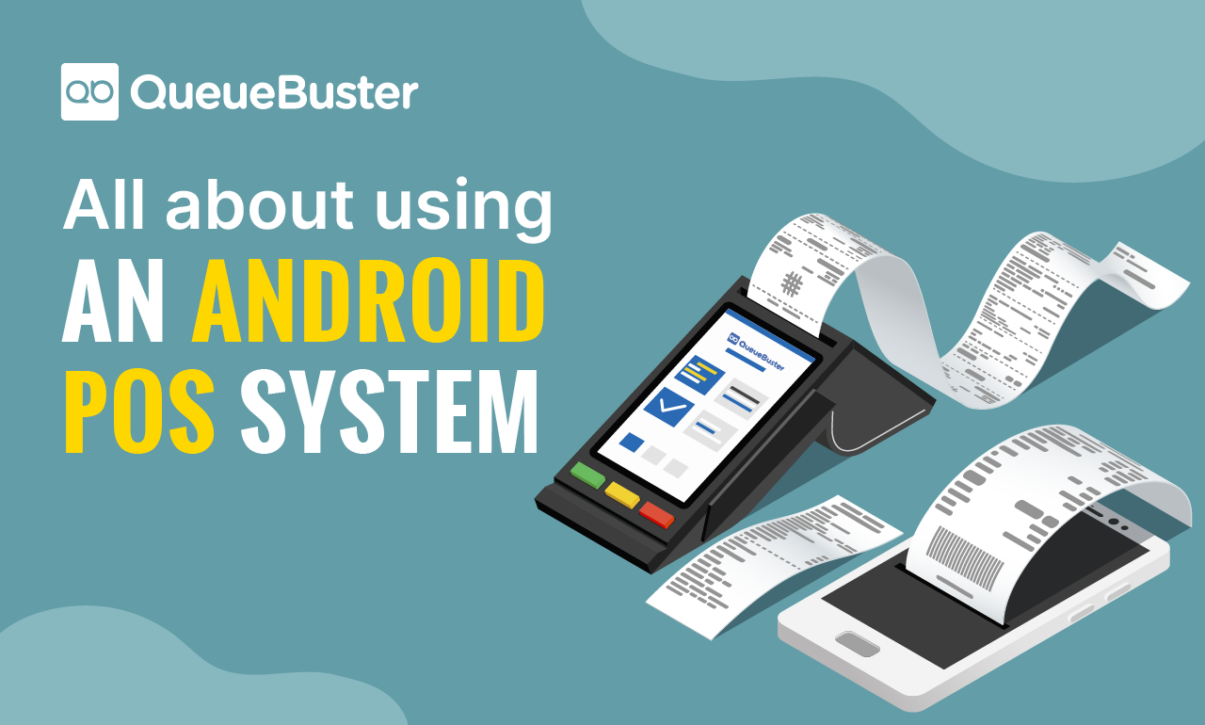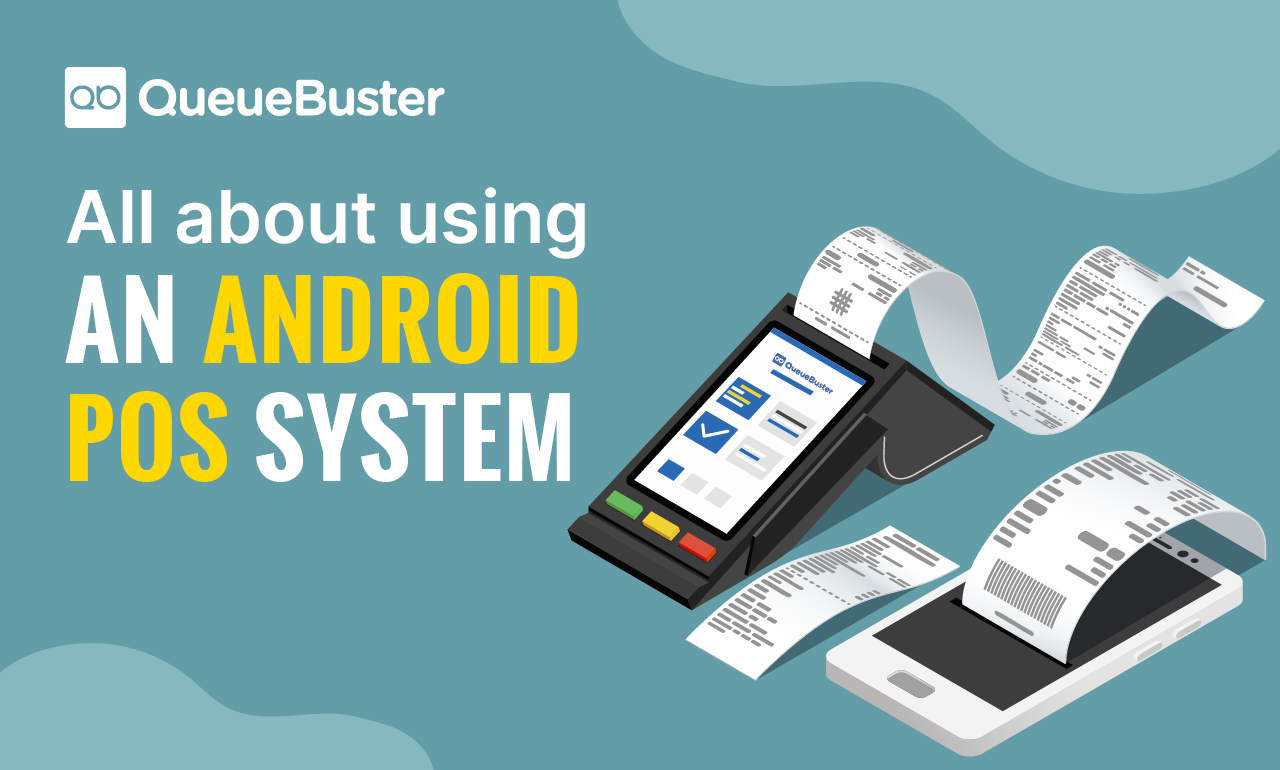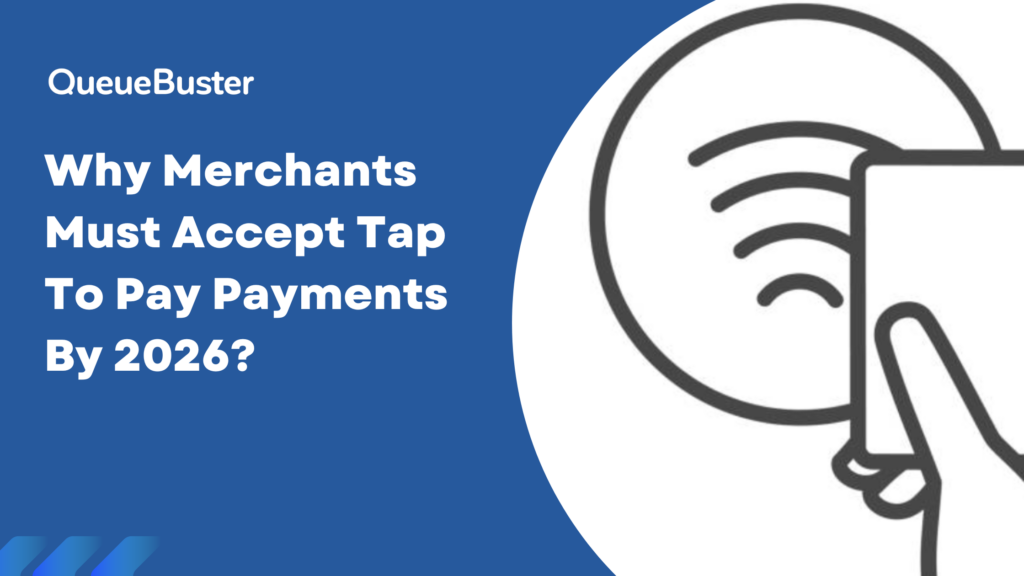
The Pros and Cons of using an Android POS System
The Pros and Cons of using an Android POS System

By QueueBuster Team Published: April 14th, 2024
In the fast-paced retail business, the lines at the cash register can be very long and it is a pain for the customers to wait. Customers hate standing in line. Businesses may have seen customers grumbling or trying to find ways to get away from the long wait times, with many eventually leaving without making a purchase.
In today’s digital age, the use of mobile applications has become increasingly common, and businesses have started leveraging this trend to make their operations more efficient. One such area where mobile apps are making a significant impact is in the point-of-sale (POS) industry.
An Android POS application is a point-of-sale app used by merchants to process credit cards, debit cards, and other payments. It runs on the Android operating system, and the main point of sale terminal is a smartphone or tablet. One example of an Android POS Billing Software is QueueBuster, which provides retailers with a comprehensive suite of functions designed to make payments more manageable.
Error: Contact form not found.
In this blog, we’ll discuss how the use of POS apps, such as QueueBuster (QB), is changing the way businesses process transact. We will also discuss the main pros and cons of using an Android POS system.
The Pros of Using an Android POS Application
Using an Android POS app like QueBuster can be helpful for businesses of all sizes in many ways. It can improve efficiency, reduce costs, and make transactions faster and easier. The following are the main pros of using an Android POS app:
1. Cost-effective
Many businesses need help finding a point of sale (POS) apps that fit their requirements and don’t cost too much. Traditional POS solutions can be expensive because of the higher upfront hardware costs, monthly service fees, and maintenance and support that are needed for a long time.
An Android POS app offers a cost-effective and flexible solution to these problems. Android POS systems can be easily changed and expanded to meet the needs of businesses because they are based on an open-source platform and use cloud-based services. They can also be connected to other software solutions and accessed remotely so businesses can manage their solutions from anywhere in the world.
2. Integration
An Android POS app can integrate with other business systems, such as accounting or inventory management software, providing a seamless experience for business owners and employees. This can save time and improve accuracy. When different business systems are integrated, there is no need for manual data entry or reconciliation between systems, reducing the risk of human error and saving time.
3. Customizability
Android POS apps are often highly customizable, allowing businesses to tailor the app to their specific needs. It allows businesses to quickly and easily update their software as new features become available or as their customer needs change, thanks to the open-source libraries which allow for easy customization. This can include adding specific features, such as customer loyalty programs or discount codes.
4. Scalability
With traditional POS System, scaling up or down can be expensive and time-consuming, requiring significant investment and planning. However, with an Android POS app, businesses can add or remove features as needed, making it a more flexible and cost-effective option.
Android POS apps can be scaled up or down as the business grows or changes, making it a more flexible option than traditional POS systems that require significant investment and planning to change.
5. Remote Accessibility and Management
Businesses, especially those with multiple locations, can need help with their IT staff and how they can access and manage the POS software.
An Android POS app lets retailers access and manage it from afar, so they don’t need IT staff on-site, and these staff can use a laptop to access and manage the POS software. This also lets businesses use cloud backup services, which keep all of their data in one place where it’s easy to find and manage.
What Are The Cons of Using an Android POS System
While there are many benefits to using an Android POS (Point of Sale) app for businesses, there are also some potential drawbacks that should be considered:
1. Security Risks
Using an Android POS app can potentially expose the business to security risks, such as malware or hacking. Android is an open-source platform, making it more vulnerable to security breaches than closed-source systems.
2. Reliability
The reliability of an Android POS app can be a concern, especially if the app relies on an internet connection. If the internet connection is slow or unreliable, it can lead to delays or errors in processing transactions.
3. Training
Employees may need training to learn how to use an Android POS app, especially if they are not familiar with the Android platform. This can add to the cost and time required to implement the app.
4. Support
The quality of support for Android POS apps can vary widely depending on the app and the developer. Some developers may offer limited support or charge high fees for support services.
5. Maintenance
An Android POS app may require regular updates and maintenance, which can be time-consuming and costly for businesses. Updates may be necessary to fix bugs, improve security, or add new features, and businesses need to ensure they have the resources and expertise to handle these updates.
An Android POS app is an excellent choice for businesses that want to streamline their transaction process. With features such as inventory management, sales reporting, and customer relationship management, an Android POS app makes it easier for businesses to keep track of sales, manage inventory, and provide a better customer experience. By using an Android POS app, businesses can save time and increase productivity.
It’s important to note that an Android POS app is different from an Android POS system.
While an Android POS system offers many benefits, such as mobility and accessibility, it may have some limitations. For example, compatibility issues with certain hardware components, such as printers or barcode scanners, can be a major issue. Additionally, open-source systems like Android may be more vulnerable to security threats such as hacking and viruses. Limited functionality and customization options may also be a concern.
Things To Know Before Launching Your Online Store
That’s why an Android POS app like QueueBuster (QB) is an excellent choice for businesses. QB is a mobile point-of-sale solution that offers a range of features to streamline sales and payment processes. It’s ideal for businesses with multiple locations or those that need to process payments in various locations because of its mobile capabilities.
Error: Contact form not found.
The app is also equipped with advanced security features to protect sensitive customer information at all times. Most importantly, QB’s Android POS app is highly customizable, allowing businesses to tailor the app to their specific needs and requirements.
So if you’re looking for a powerful, customizable, and user-friendly Android POS app, look no further than QueueBuster. Enjoy a free 14-day trial by signing up on the QueueBuster App. You can also schedule a demo by getting in touch with us here.
Popular Posts

MEWA India 2026: Showcasing QueueBuster POS to the Global Dry Fruits Industry
MEWA India 2026 was not just another industry event for us, it […]

Why Merchants Must Accept Tap to Pay Payments by 2026
The way customers pay has changed rapidly over the last few years […]